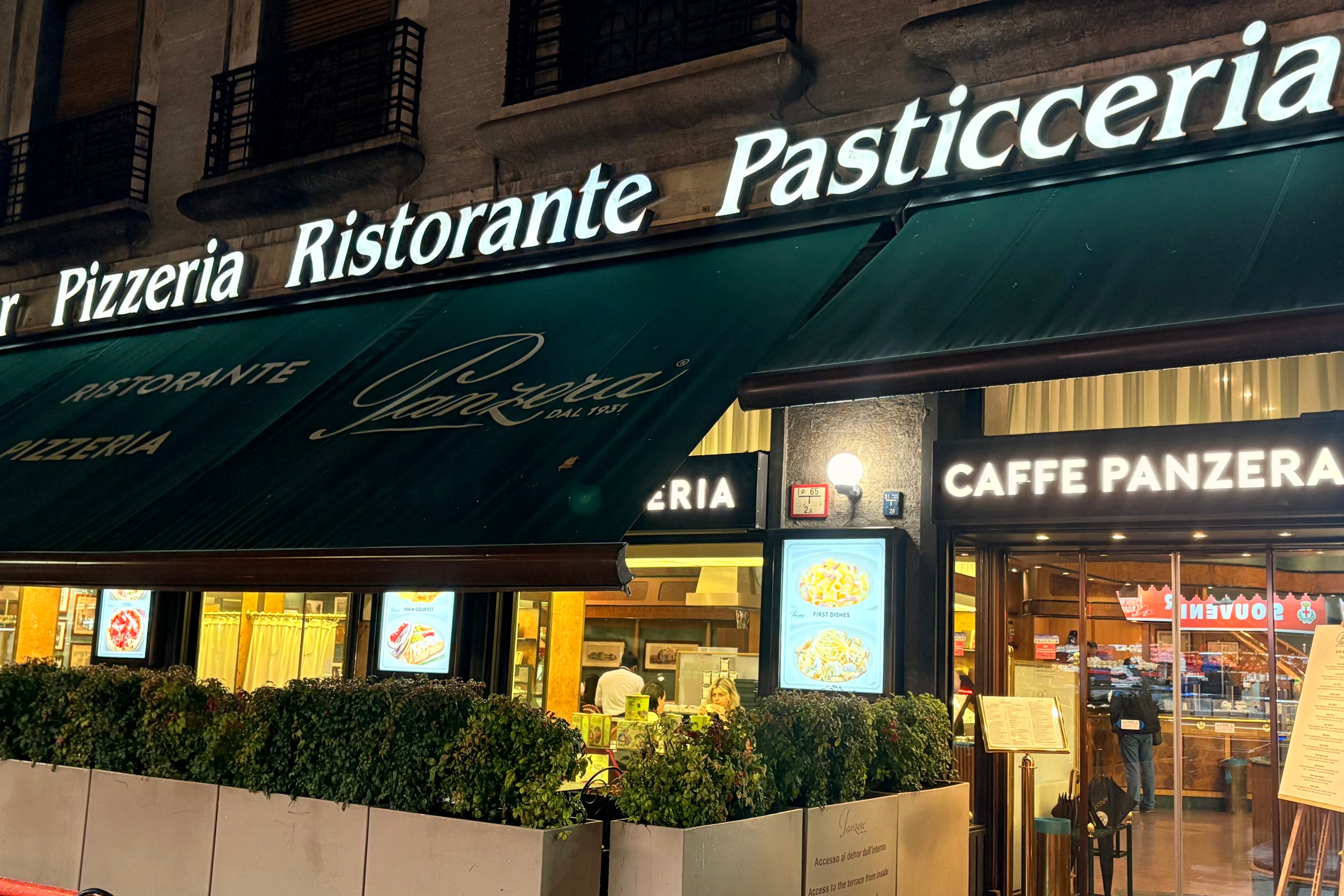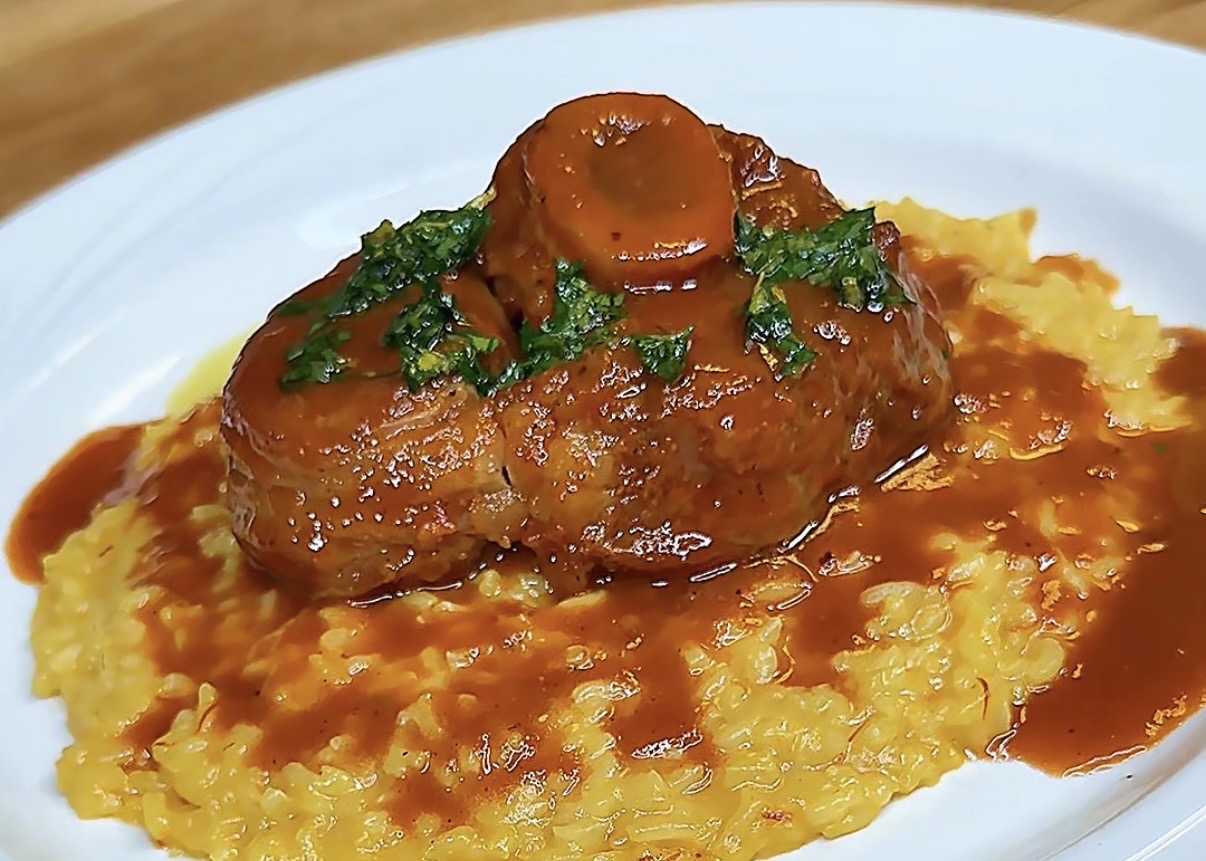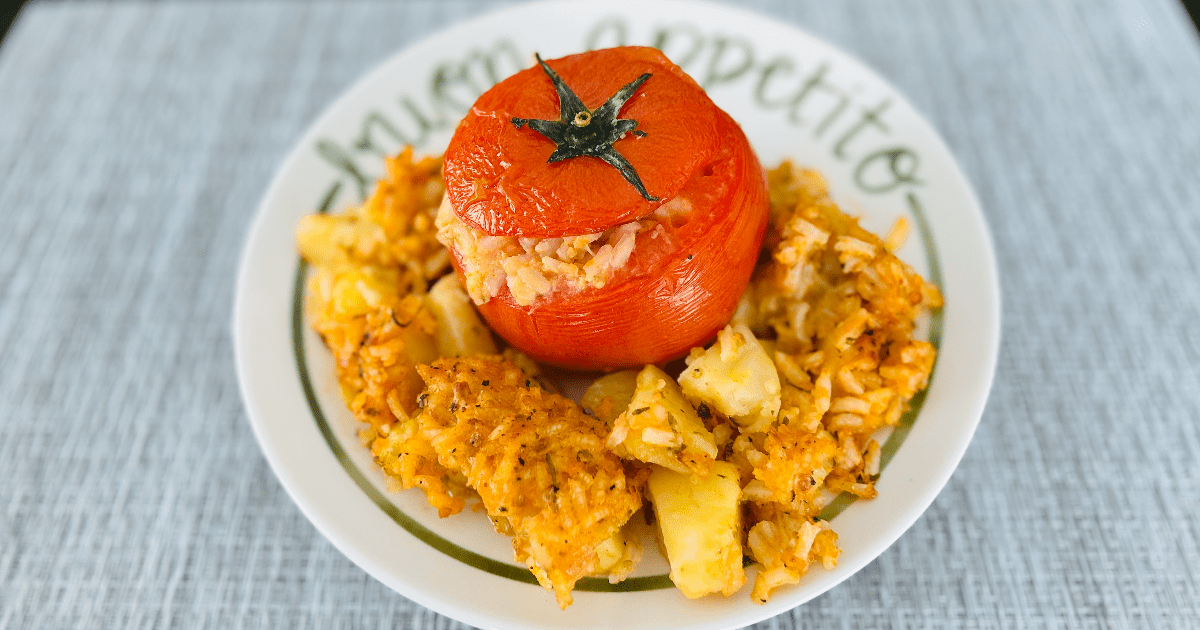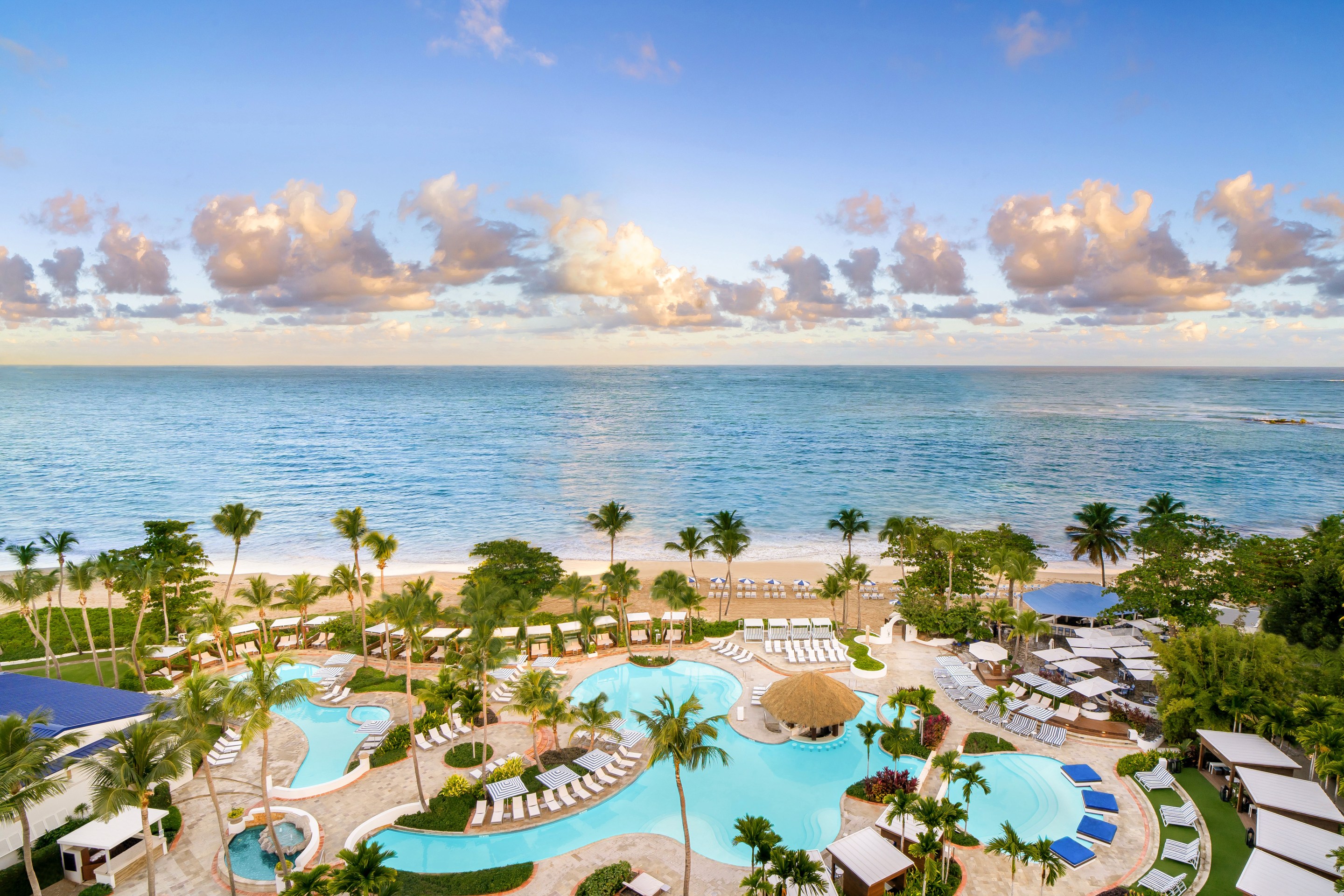Carlos Suarez’s next restaurant opening is personal. The founder and owner of Rosemary’s is bringing the newest location of his garden-focused Italian concept to Miami, not far from where he spent a significant part of his youth. While all of his Casa Nela Hospitality restaurants are in New York City—with one outlier in Tokyo—Rosemary’s Miami will serve as a homecoming with other important connections to Suarez’s identity as a person and restaurateur when it opens next month.
When Suarez debuted the first Rosemary’s in New York City’s West Village in 2012, he was a relative newbie in the business. He had found success with Bobo, opened in 2007 and popular for date nights and gatherings for its elevated yet affordable food and multi-level space with rooftop dining. Rosemary’s, named for his mother, and designed to evoke the Suarez vacation home in Lucca, a small city in Tuscany—complete with a rooftop garden for sourcing vegetables and herbs—quickly found an audience and has become a classic Manhattan Italian restaurant, spawning two other NYC locations.
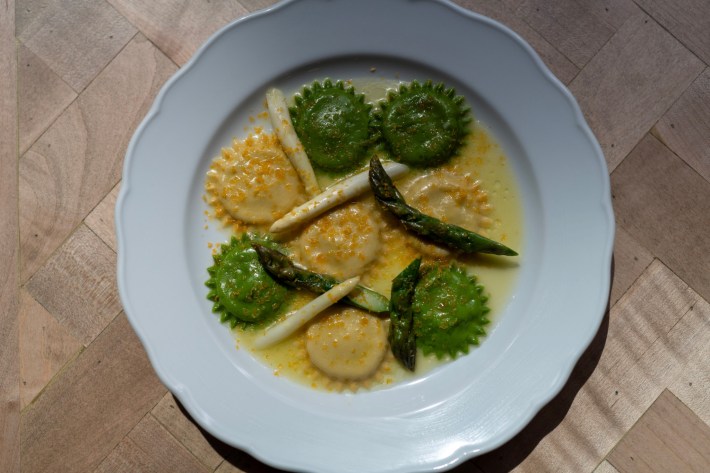
It would be easy to dismiss the forthcoming Rosemary’s in Miami’s emerging Wynwood district as a case of yet another New York City restaurateur (con)descending into a less mature restaurant scene with the advantage of being ideal for tropical getaways and attracting tourism dollars. But Suarez was raised partially in Coral Gables, and his father is Cuban, connecting him to one of Miami’s strongest communities. He has also differentiated the Rosemary’s brand from other Italian restaurants with a farm-to-table focus; in Wynwood, the restaurant will source some of its ingredients from a mini-urban farm on an adjacent lot. His executive chef is Craig Giunta, an Italian-American who has worked under Andrew Carmellini in NYC and Evan Funke in Los Angeles and Miami, and was part of the team that earned a Michelin star at Boia De.
I spoke with Suarez not long after Rosemary’s Miami held two collaboration dinners to begin acquainting itself with the Miami community, at Mediterranean standout Mandolin and the excellent Italian neighborhood spot Macchialina (featured in our recent guide to Miami’s best Italian restaurants). He was effusive about how the local industry has been so welcoming, and went on to discuss his goals with the new location, his background, and his philosophies about the hospitality business in this interview, which is edited and condensed.
Your Casa Nela website cheekily says that Rosemary’s needed a vacation home. But that’s not the main reason you’re opening in Miami, right?
I think that came out of the marketing team trying to be funny [laughs]. I grew up in Florida. Up until third grade, I was living in Tampa, and then went to a boarding school in England. Just after Hurricane Andrew in 1992, my folks moved to Miami. So I lived there through the '90s and into college. So Miami is the market that I know best, outside of New York. And what I've realized in the process of continuously flying back to Miami over the last year is that it feels like home in a way that New York doesn't, despite having lived in New York for all my adult life. So there's a big personal desire to return.
Are your parents still in Miami?
My folks moved from Miami to Lucca in Italy about 20 years ago. The restaurant Rosemary’s is very much inspired by meals at home in Coral Gables at my parents’ kitchen table, and then also by their house in Lucca and meals there. So opening Rosemary’s with its garden and the copper pots on the wall, [like those] that were on the wall at home, where it all started, is pretty cool.
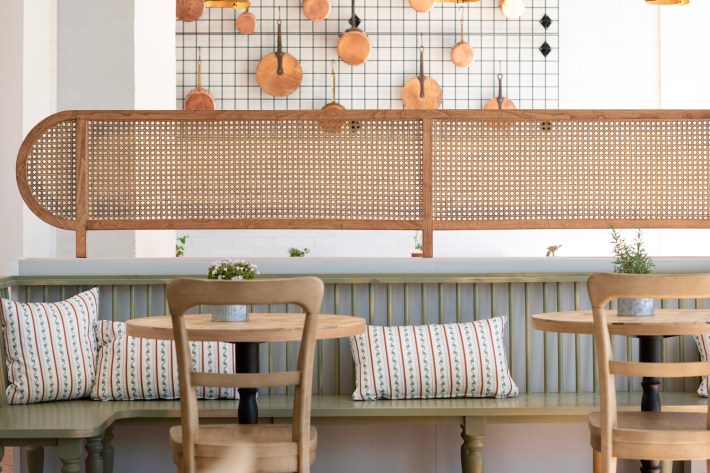
I'm curious about how you decided to bring Rosemary’s to Wynwood, a fast-changing neighborhood miles from the beach and tourist areas most NYC restaurateurs seek out.
I think the idea of bringing a garden to a former industrial neighborhood appeals to me as somebody who wants to break new ground and challenge the status quo. Wynwood is really dynamic. There's a lot of interest in Wynwood. And geographically, it’s convenient to a broad range of the South Florida Miami community. Folks from the Beach can get to Wynwood pretty easily, and from Brickell, the Gables, and [Coconut] Grove. So I liked how folks from other neighborhoods would [be able to] find us. Whereas, if we're in the Gables, where my folks used to live, I felt that we might just be a Gables restaurant.
This isn't the first time you've exported the Rosemarys brand. Can you tell me about the Tokyo Rosemary’s and how that came about?
We were approached by a developer who [was building a development] across the street from the train station in Shinjuku. They wanted to have a restaurant with a garden on the roof, so they called us. The opportunity was exciting. So, you know, the restaurant has been open since 2015-2016.
Does Tokyo have a similar menu to the three Rosemary’s in NYC?
We were approached by this developer to bring the restaurant to life in Tokyo. We recognize that it's hard enough running restaurants where you can walk to them, let alone being on the other side of the world. So we asked them to introduce us to a local partner to run the restaurant. The intention, yes, is to be very similar to the existing Rosemary’s. It certainly looks very similar — they have the orecchiette on the menu, but the menus are adapted for the local audience. In Tokyo, they enjoy big, lavish desserts. So there's a whole category of desserts that would make our chefs in New York smirk—there are some local differences for sure.
What about in Miami? Do you envision changing things up there at all, or is it following the blueprint?
Yeah, the Miami menu will be largely recognizable for anyone coming from New York. But we're excited to be working with local produce that is going to be more available for more months of the year. And obviously the seafood. It'll be interesting to figure out how much seafood is sourced locally. Our initial read is that, despite Miami being all about the water, a lot of the restaurants there are sourcing seafood from, say, Mid-Atlantic and kind of cooler water. So we would love to have a slightly more coastal expression of Rosemary’s. But I think we'll be learning along the way. Our chef is a local and he knows what's available, so a lot of it's in his hands.
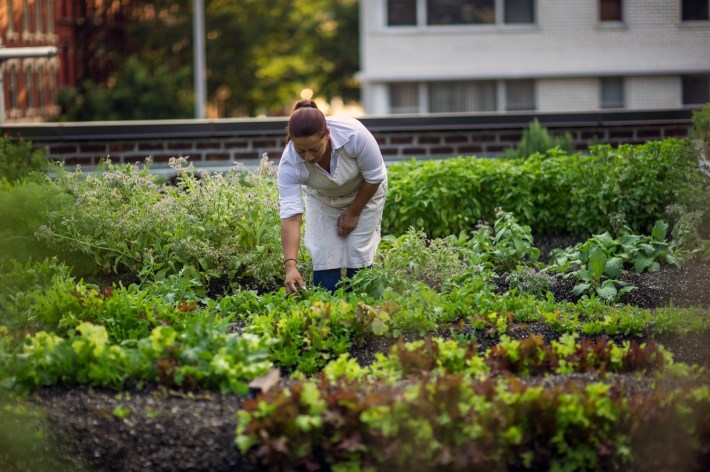
I wanted to ask you about the fact that most of your restaurants are marketed as a concept and brand rather than as a showcase for name chefs. Is that intentional?
That’s interesting. I think the restaurants have a very strong vision, whether it's being a love letter to France, like Claudette, or a love letter to Italy, and have a very kind of specific residential frame— intended to be great neighborhood restaurants. So maybe that has attracted a certain type of chef versus a big name chef. It's not really in my DNA to charge a lot of money for stuff. My dad's a Cuban immigrant—big, high prices are anathema to us. So it's a really interesting question, but it doesn't necessarily have anything to do with the caliber of chef.
Until Rosemary’s Miami opens, your newest restaurant is Roey’s in Manhattan. Why did you want to open a pizza-focused restaurant? It’s kind of a challenging market in NYC, no?
We started Rosemary's farm in the Hudson Valley around 2015, and we were pretty focused on sourdough pizza that highlighted local produce there. We thought that pizza was a good extension from pasta. And with Roey’s, there was this beautiful corner space available on Perry Street. The proximity [to the original Rosemary’s] was attractive, so that's what kind of got this thing going. You know, you're right to point out how pizza is very challenging—and fickle. So, you know, it's been a journey to this point where the restaurant’s having its best year ever. Pizza is a very crowded market, and continues to be increasingly crowded, but I’m really proud of the team there. They found an audience, and I think that the pizza there is superior to most places.
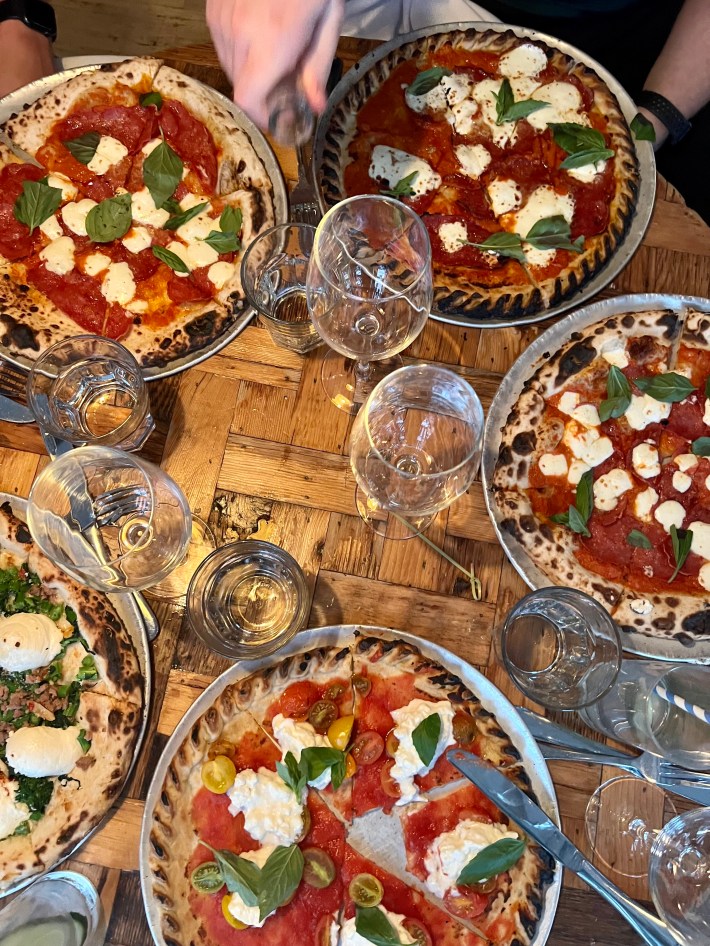
The original Rosemary’s is now in a very crowded environment. I mean, the West Village has become what is probably the best Italian/Italian-American food neighborhood in the world. You guys are pioneers, but also competitors with a lot of big names, from Don Angie to Arthur & Sons to Via Carota and so on. How has that played out? And how do you stay relevant amid all these bright lights that have come in?
Yeah, no doubt. Well, fortunately, you know, the reason all these bright lights are attracted to this neighborhood is because it's such a vibrant neighborhood filled with sophisticated, loyal, wonderful guests. It's a wonderful place to do business. I think that's kind of where, where it all starts, in terms of the competition itself. I've been saying this since Seamus Mullen had Tertulia on Sixth Avenue. Seamus had Tertulia. There was Buvette with Jody Williams. Dan Kluger had Loring Place. There were amazing talents that were all operating within the same Zip code, essentially. That's an incredible community to be part of. It's very inspiring.
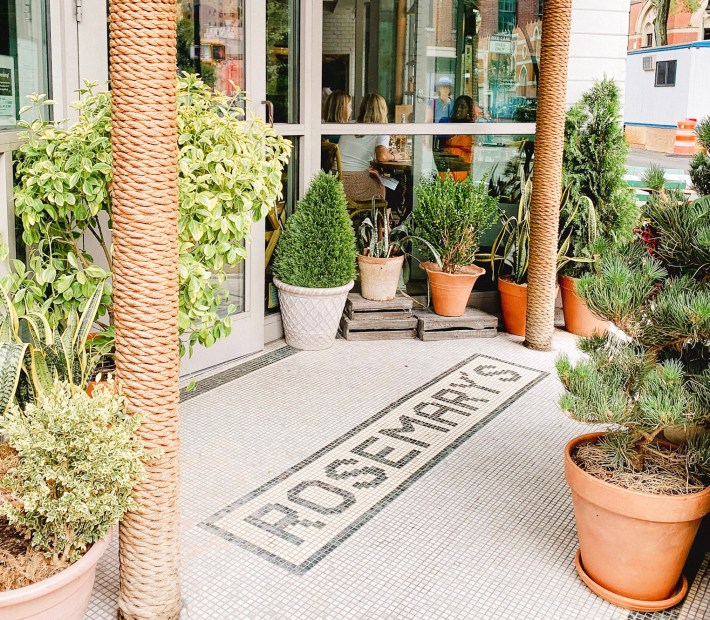
So it's kind of a blessing and a curse when you have to compete? You're surrounded by people that are bringing that audience, like the rising tide lifts all boats?
Yeah, there's that as well, for sure.
You started out in finance before transitioning to restaurants. Do you have any regrets about making that decision as a young man?
Zero regrets. First and foremost, I get out of bed every day with a desire to challenge the status quo. Leaving my preordained career path in finance was like a big FU to what I was supposed to be doing. So it certainly feels good from that perspective. And then the other reason I get out of bed every morning is to find belonging, create connection, create community, through this innate passion for food and hospitality. I have started referring to it as a calling—like this is just what I've been put on the earth to be doing. Yes, it is brutally challenging, economically—very risky and very hard. I'm sure there are much better ways, or much easier ways, to make money and a living and all the rest of it, but I feel very, very blessed to be doing what I love to do.
How does the expansion to Miami fit into that?
We haven't opened yet. We've got a great lease. We've got an amazing space. It was a former warehouse, and then next to it is a parking lot, and we're turning that parking lot into an outdoor garden with an outdoor dining room. So I couldn't be any more excited about this expression of Rosemary’s. The dream that we're creating down in Miami is going to be really special.
Rosemary's Miami is scheduled to open in mid-January 2025. Follow on Instagram for updates or visit the Rosemary's website for more information.

